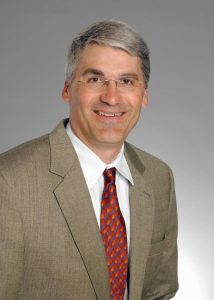The University of Wisconsin Department of Ophthalmology and Visual Sciences has increased the number of residents it accepts each residency year.
The Accreditation Council for Graduate Medical Education (ACGME) has approved the department’s request to accept an additional first-year resident, bringing the total from 3 to 4.
“I am very grateful to everyone for their hard work and dedication in making this happen,” said Andrew Thliveris, MD, PhD, vice chair of resident education and ophthalmology residency program director. “I am especially excited by the new and valuable educational experiences this will allow for our residents. It will enable them to receive a more comprehensive educational experience by allowing the creation of new rotations.”

Thliveris noted the positive impact the change would have on the training residents receive on the latest cataract surgical techniques. “This is a skill that is very difficult and time consuming to master,” he said. “This change will allow our residents a more comprehensive cataract experience by working with more of our talented teaching faculty.”
The resident complement is the maximum number of residents a program can enroll. According to the ACGME, it is determined by the program’s educational resources, the current number of core faculty members and total faculty members, the types of patients available, and the number of procedures performed each year at the program’s participating sites.
In addition to training on the latest surgical procedures, residents participate in a monthly community clinic where underserved members receive free eye diagnoses and treatment. They also have the option of an elective international rotation to learn surgical techniques rarely performed in this country and the opportunity to contribute to leading-edge research projects.
“Our resident education program already provides a breadth of experience beyond standard rotations,” said Thliveris. “This will simply take it to the next level. Our residents are a critical part of our core.”
The department was able to match 4 new residents for this upcoming academic year. “Full steam ahead,” said Thliveris.